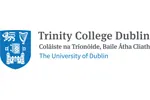About Mammalian Cell Physiology, MSc - at Trinity College Dublin
Admission RequirementsTo be eligible for admission, applicants will be expected to hold a good degree in a life sciences discipline, medicine or pharmacy. Applications from chemists and engineers, with an interest in biotechnology, may also be considered.
Programme AimsThe aim of the course is to provide a postgraduate syllabus which emphasises the physiology of cellular function and the methodological approaches currently available to monitor physiological processes. The course is intended to equip participants with the skills necessary to progress into a career within the pharmaceutical sector or bio-research environment.
Target ParticipantsThis course will benefit those who wish to expand their knowledge of cellular physiology and improve their theoretical and practical understanding of laboratory techniques. The course will appeal to biology graduates who have limited experience in cell and tissue physiology and wish to develop an interest in this branch of biology, and mature students who wish to return to a laboratory career and require training in recent developments in cell function and analysis.
Programme Structure and ContentInstruction for the course consists of approximately 250 contact hours over two academic Terms to include lectures, laboratory practicals, journal club workshops and student-based seminars.
Specialist themes covered include:
- physiology of cellular function
- intracellular signalling
- apoptosis
- physiological pharmacology
- cellular techniques in physiology
- molecular physiology
- the physiology of cytokines, nitric oxide and prostaglandins
- animal handling and legislation relating to use and care of laboratory animals
- the appropriate methods for collection, analysis and interpretation of scientific data
The third Term consists of an intensive research project on some novel aspect of cellular physiology. The Department of Physiology has strong research interests in the fields of neurobiology, apoptosis, muscle cell physiology, neuroimmunology, respiratory physiology, synaptic transmission, inflammation, endothelial physiology, stem cell biology and tissue engineering, and projects in these areas of research may be undertaken in consultation with an expert supervisor. Training in a range of cellular techniques including tissue culture, immunocytochemistry, electron microscopy, western immunoblot, measurement of intracellular ion concentration using ratiometric probes, confocal microscopy, high performance liquid chromatography, suction electrode recording and evaluation of apoptosis will be provided. Some projects may involve in vivo experimentation or procurement of clinical samples; in those instances appropriate ethical approval will be sought and full training/supervision provided. Actual practical work is expected to occupy of the order of 400 hours.


